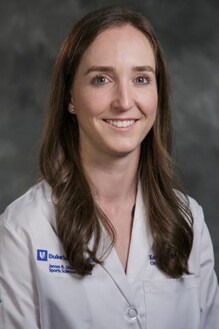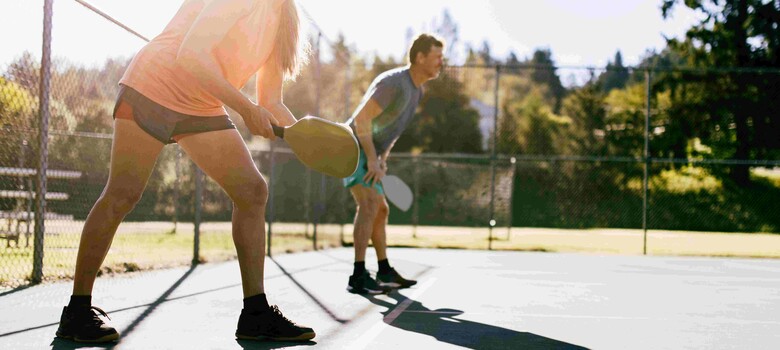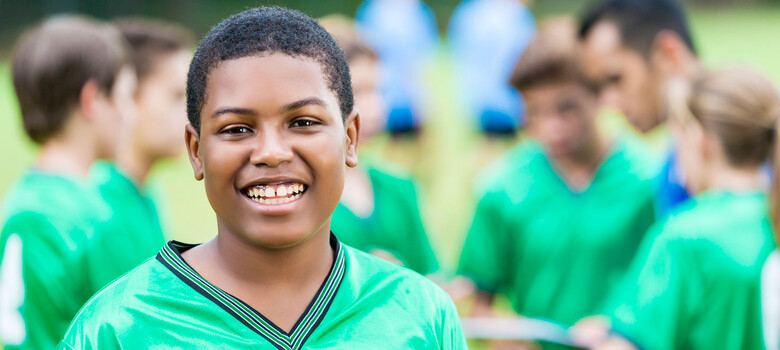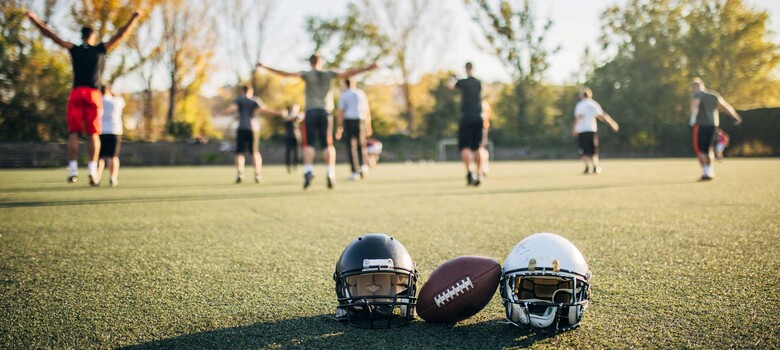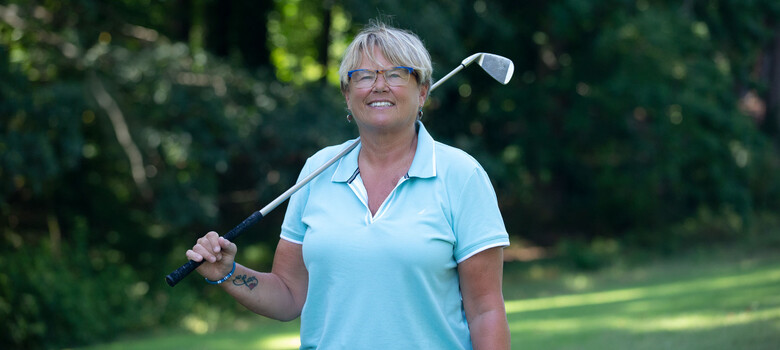Treating Sports Injuries in Children: What Parents Need to Know

Duke orthopaedic surgeon Kendall Bradley, MD, treats sports injuries in children and adolescents. In this Q&A she offers helpful information for parents looking for orthopaedic care for their child.
What should parents look for in sports medicine care for their child?
Look for a practice that has experience working with children and has a team-based approach. Our team at Duke includes the patient, caregivers, doctor, and physical therapists, at a minimum. Understanding both the short- and long-term goals of a young athlete can help frame and direct their care.
What advantages does Duke Sports Medicine offer for families with child athletes?
Part of my job is being a team physician for Duke athletics. I was also a college athlete who dealt with various injuries, and I had knee surgery. This combined experience helps me understand the pressures of being a young athlete, the mental component to injury, and how to navigate relationships with coaches.
It is essential that young athletes have individualized treatment plans that are flexible depending on where they are in their season -- and their career. Many of our patients have college and professional aspirations, and we want to help get them there. Our goal is to get both our recreational and elite young athletes back to sports as quickly and as safely as possible.
What other child-specific sports medicine services does Duke offer?
We have a team of fantastic physical therapists who work regularly with children and parents and have special training in pediatric physical therapy. Also, we understand that many people travel to Duke for their care. In these cases, our therapists communicate with your local therapist to make sure important milestones are achieved during recovery.
In addition, we offer child life services for patients through Duke Children’s Hospital. This group can meet with your child before surgery. They create a packet at their level that describes the surgery process from check-in to going home. It helps ease anxiety and prepares them for the path ahead.
Why is it important for parents to find a sports surgeon with experience treating kids?
We have a different approach to treating injuries in kids because they still have open growth plates -- areas of growing tissue that enable their bones to reach adult length and shape. For example, an ACL reconstruction in a 12-year-old should be performed using a different technique than for an adult. We want to avoid injuring the growth plates in kids during this surgery. Similarly, for a meniscus tear in an adult, generally a portion of the torn tissue is removed. For the same injury in a child, we try to preserve that tissue.
It is also important to remember with our pediatric and adolescent athletes, family involvement is key to a successful outcome, as is addressing the mental and emotional components of the injury.
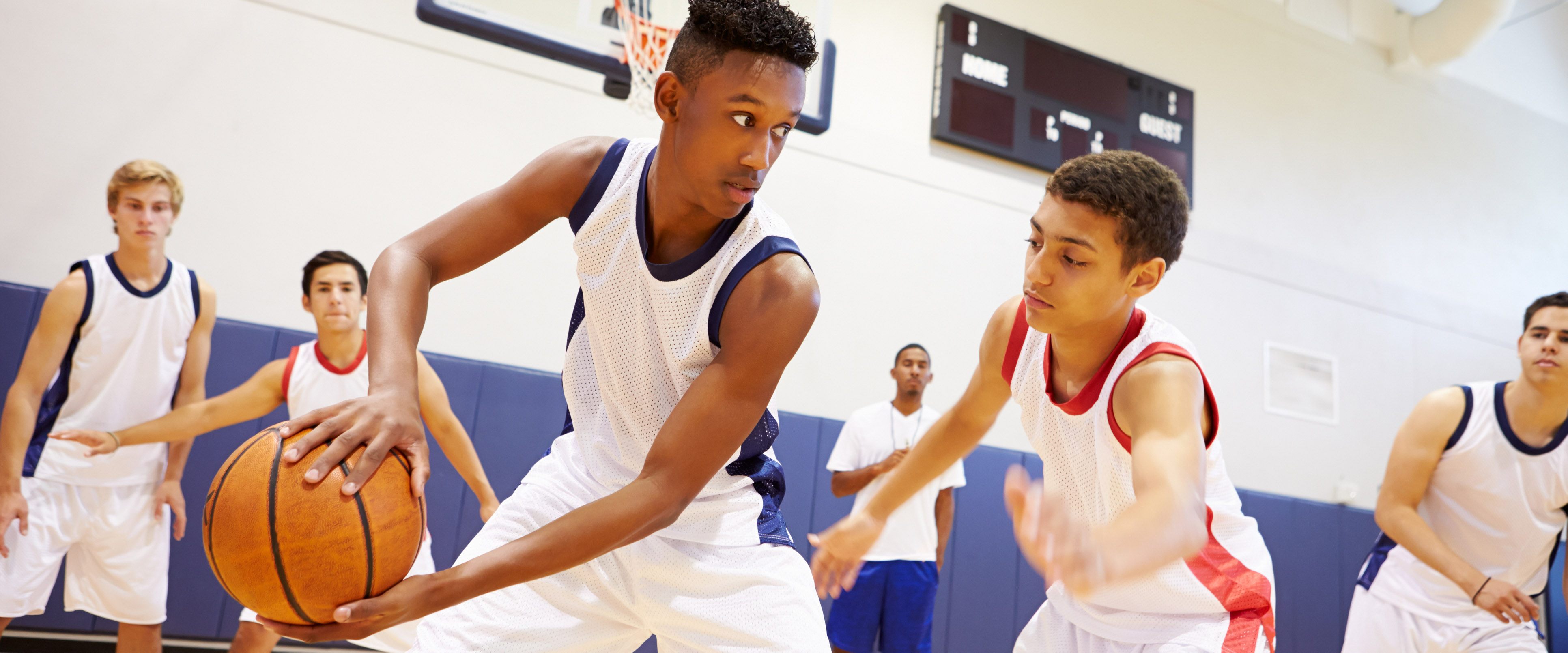
How is a sports surgeon who treats children different from a pediatric orthopaedic surgeon?
A general pediatric orthopaedic surgeon typically treats children with conditions such as hip dysplasia, scoliosis, cerebral palsy, and limb deformities.
As a sports surgeon, I specialize in treating injuries that occur during sports -- injuries like shoulder dislocations, ACL tears, patella dislocations, cartilage injuries, or meniscus tears. Because children are still growing, these injuries need to be treated differently, especially when surgery is involved.
Most of my practice is centered around the knee, shoulder, and elbow. We have other experts who treat hip injuries that affect children. Our program at Duke can take care of all pediatric and adolescent sports issues.
How has your personal experience shaped the way you treat children with sports injuries?
I was a Division I soccer player and team captain at Duke. I also played basketball through high school. I dealt with injuries during my career, two of which required surgeries. I understand both the physical and emotional toll an injury has on an athlete and keep this in mind when treating patients. I believe that using a team-based approach and the latest medical advances, we can get your young athlete back in the game!
